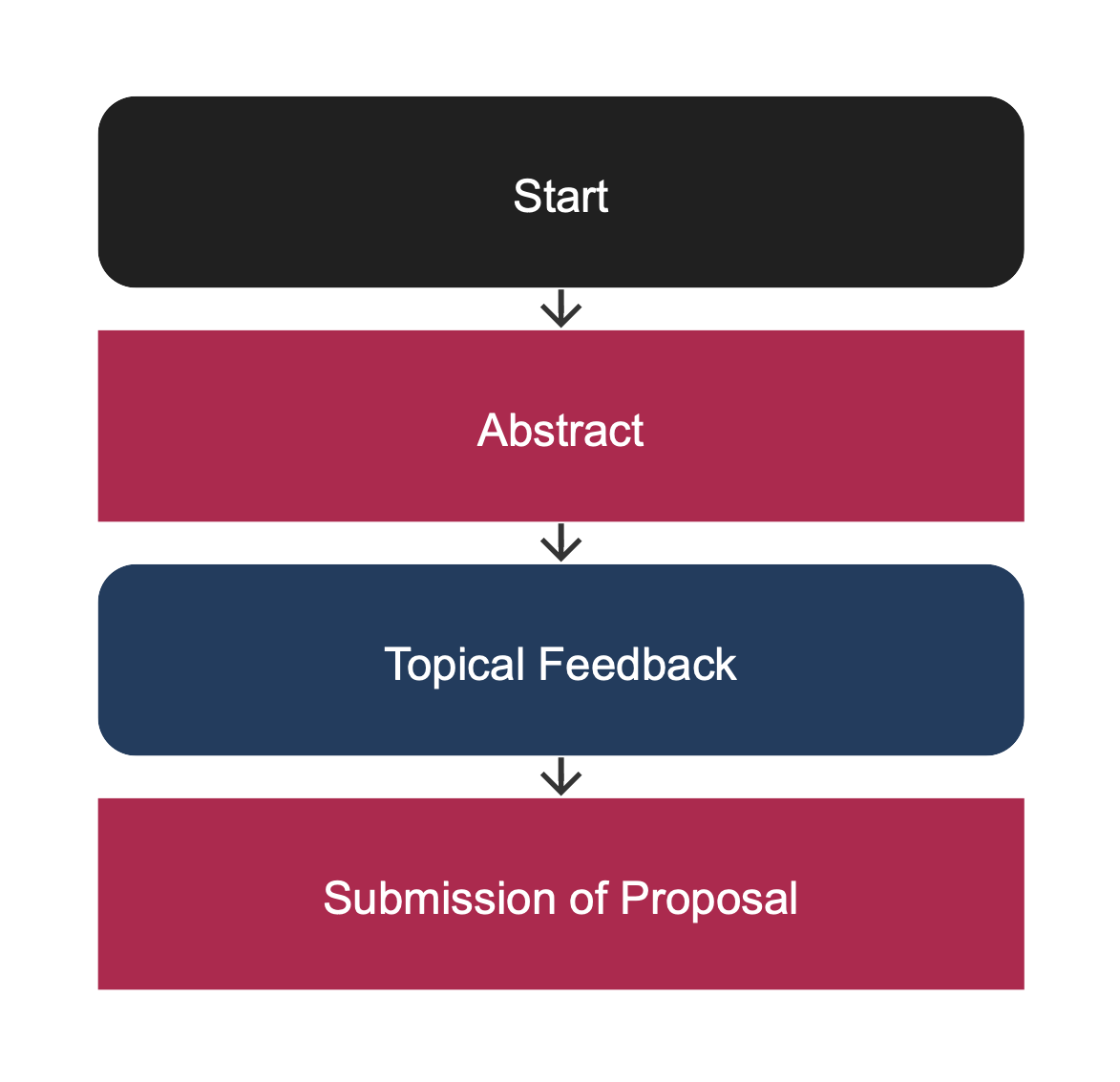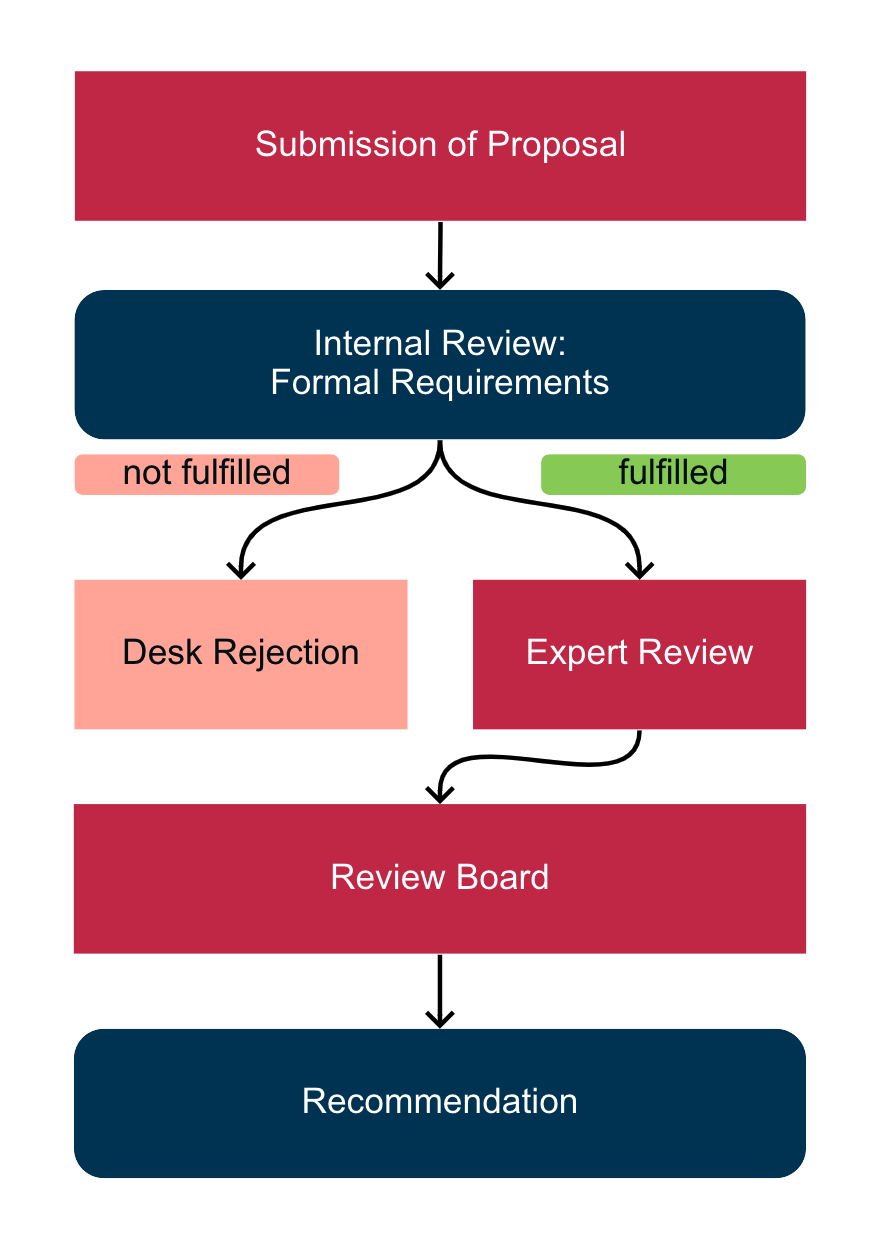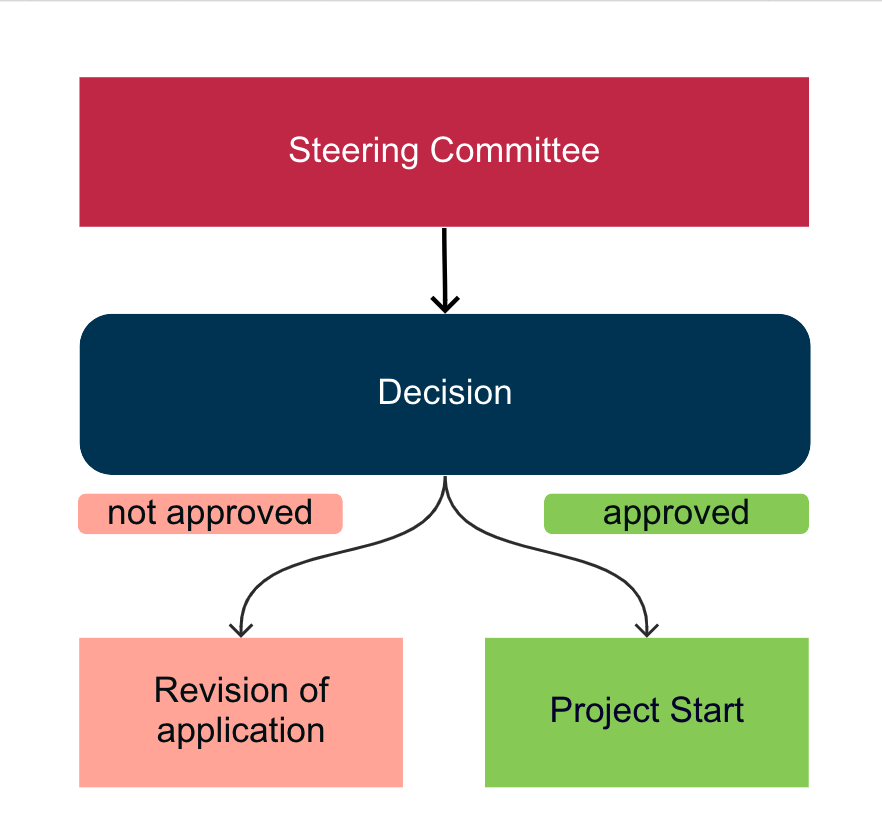Why?
We work at the intersection of developing technologies and social responsibility. This is why we support knowledge and technology transfer as well as life-long learning on an inter-organizational layer. For this, we are always in exchange with society, research, teaching and economy.
This can happen in the below listed formats for projects in science, education and society. If you have different ideas, contact us. We are looking forward to new creative ideas.
Whom?
You are a scientist, a researcher, a student or working in economy and want to cooperate with the excellence of institutions of higher education? Then you are at the right spot with us.
How we support you
Here you can find a step-by-step description of our funding process.
- Submission of an abstract on the project:
- max. 1 DIN A4 page,
- Content part: Problem (incl. naming the most relevant state-of-the-art), project goal, most important research question for achieving the project goal and planned method(s);
- Organisational part: Partnering considerations from the CTS houses, time frame, first rough cost estimate.
- Application processing via online tool TU coLAB
- Personal project application form to be requested by e-mail to proposals@cts.wien (receive link incl. completion help afterwards)
- Feedback on the content of the abstract and project application from the CTS before the submission to the coLAB-Space (access on request) with ZIP file containing all documents incl. signed application
- Internal review of the project application according to expected formal requirements
- Fully completed and signed application
- Explanation of the non-application of certain funding criteria in the project description
- Complete budget overview
- Complete Gantt chart (project schedule)
- Complete listing of the consortium including at least 3 CTS houses
- CVs of the project team members
- Confirmation of participation of project team members in form of completed application signed by project leader
- Working time contributions of the individual project team members (also in-kind)
- Review of the project application according to scientific and formal quality by experts and the review board
- Recommendation for/against project funding by the Review Board to the Steering Committee
- Review of project application by Steering Committee
- Decision on project funding by the Steering Committee
- If project funding is approved, project start at indicated time by means of kick-off meeting (includes financial processing)
- If project funding is not approved, revision of the project application for a repeated submission
You can find a visualization of the entire funding process in this general overview (PDF).


